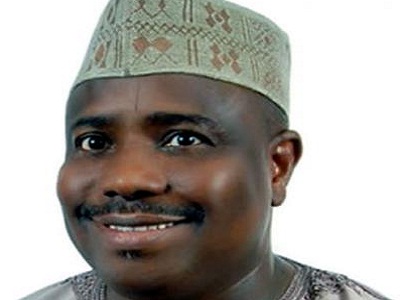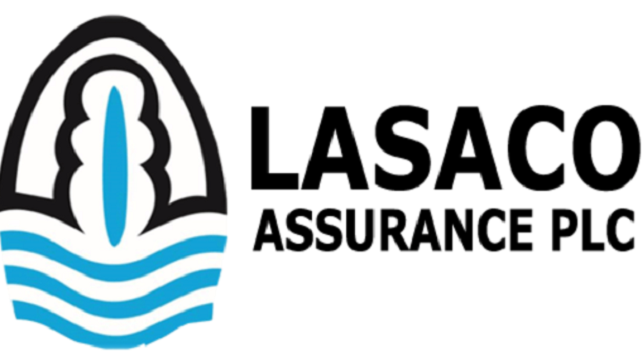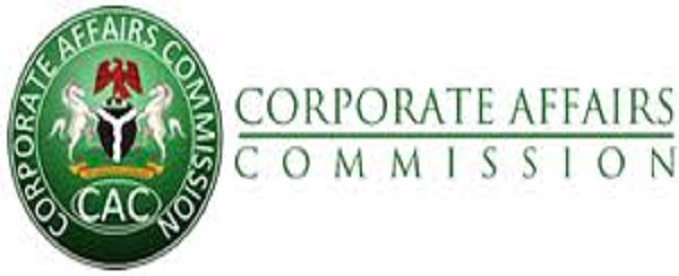News
Reps Accuse FG of Spending N4.7trn Without Approval

House of Representatives Committee on Public Accounts, at the weekend, accused the Federal Government of spending about N4.7 trillion from 2004 to 2012 from the Service-wide vote without the approval of the National Assembly, as stipulated in section 80 of the 1999 Constitution as amended.
Adeola Solomon Olamilekan, chairman of the Committee, who stated this while briefing, also accused the government of former President Olusegun Obasanjo of expending N250 million to feed former president of Liberia, Charles Taylor and his family, who were on an asylum in the country between 2005 and 2006.
Olamilekan, while speaking on the alleged abuse of the Service-wide Vote, maintain that, “most of the expenditures to which the Service-wide Vote releases were deployed were routine in nature and did not qualify for emergency funding.”
According to him: “For instance, between 2004 and 2012, a total sum of N1, 284,853,731.20 was spent on publicity and publication of various government programmes; between 2004 and 2005, the sum of N250 million was spent on the upkeep of the former Liberian president, Charles Taylor; another sum of N14,006,494.847.57 was also released from the Service-wide Vote for the payment of judgment debts against the Federal Government.
“The Office of the Accountant-General of the Federation, Budget Office and the Ministry of Finance released to their various offices, a total sum of N2, 267,002,101 to a few auditors are audit fees and in 2011 alone, the Office of the Accountant-General of the Federation paid out the sum of N809,358,504 as audit fees to some external auditors carrying out audit of the Federal Government financial activities instead of the Office of the Auditor-General for the Federation”.
Speaking further, he maintained that, “the expenditure of N162 million from the 2011 Service-wide Vote releases tagged: “Closing Accounts” was incurred jointly by the Office of the Accountant-General and the Budget Office of the Federation,” adding, “an expenditure of N1,059,177,589.31 ($6,619,859.93 at the rate of $1=N160) in 2010 and 2011, was said to payment of outstanding tax on Nigeria House in New York.”
He added that: “Successive governments have, from 2004 to 2012, spent a whopping and mind-boggling sum of N4.17 trillion, as against N1.8 trillion naira approved by the National Assembly as Service-wide Vote component of the budgets of those years, translating to N2.27 trillion extra budgetary spending or 220% above the Service-wide Vote as approved in the budget for the period.” Such extra-budgetary expenditures constitute a breach of Section 81 of the Constitution of the Federal Republic of Nigeria, 1999 (as amended) and an illegality.”
He stressed that, “the Service-wide Vote had become an alternative budget which government prefers to patronise than the annual budget, leading to poor implementation of the annual budget as approved by the National Assembly.”
News
Lasaco Assurance to Invest in Technologies, Systems to Deliver Value to Clients

Lasaco Assurance Plc, has said it would continue to invest in technologies and systems that delivers tangible value to clients and drive industry innovation.

Mr Abiodun Razzaq, Managing Director of Lasaco Assurance, who stated this at the 2025 customer forum organised by the company for its northern region customers in Abuja, said the forum’s interactive session offered an invaluable platform for open and constructive dialogue.
He said the forum brought together a distinguished assembly of customers, including policyholders, brokers, corporate clients, and industry partners, to engage in a robust dialogue aimed at enhancing service delivery and aligning offerings with the evolving expectations of the Northern market.
In his opening remarks, Regional Manager (Northern Region), Lasaco Assurance, Mr. Kunle Hamza underscored the company’s unwavering dedication to stakeholder engagement as a foundational pillar of its growth strategy. He emphazised that customer insights remain integral to shaping policies, refining service processes, and reinforcing the company’s brand promise.
He provided a compelling overview of Lasaco assurance’s recent performance and strategic priorities. He highlighted the company’s consistent premium income growth, bold digital transformation agenda, and ongoing operational restructuring designed to ensure responsiveness and resilience in a dynamic insurance landscape.
Addressing the customers, Mr. Adedayo Adetokun, Head of Strategy, affirmed that Lasaco assurance was actively developing multiple digital platforms to cater forvarious customer segments—part of a broader digital innovation roadmap that positions the company for future growth. He noted that human capital development was also being prioritised with targeted investments in talent acquisition and training to enhance operational capacity.
In his closing remarks, Mr. Muyiwa Anwoju, General Manager, Sales, expressed the management’s deep appreciation for the feedback received.
He assured participants that all contributions would be meticulously reviewed, categorised, and integrated into the company’s improvement plans. According to Anwoju, this forum marks the beginning of a renewed customer engagement framework, one that would be expanded across other regions in due course.
News
CAC Announces Upward Review of Service Fees

Corporate Affairs Commission (CAC) has announced an upward review of its service fees, which will take effect from August 1, 2025.

The announcement was made through the commission’s official social media page on Tuesday, June 17, 2025.
According to the CAC, the fee adjustment was necessary due to the current economic conditions, rising operational costs, and input from key stakeholders.
The statement read, “The Commission wishes to inform the General Public, Esteemed Customers, and all Stakeholders that in the continued efforts to improve its service quality and delivery, it has become necessary to review certain service fees effective the 1st day of August 2025.”
The commission explained that the fee changes are part of efforts to deliver better and more digitalised services while maintaining the integrity of Nigeria’s corporate registry.
The revised fee structure will affect services related to companies, business names, limited partnerships, and incorporated trustees.
Key fee changes announced by the Corporate Affairs Commission (CAC) include adjustments across various service categories.
For voluntary striking-off, the fee is now ₦50,000 for small companies and ₦100,000 for public companies, up from the previous ₦25,000.
Relisting a company will cost ₦50,000 for LTD/GTE and ₦100,000 for public companies.
Due diligence through self-service is set at ₦50,000. Requests for extension of time to hold an annual general meeting will now cost ₦100,000 for public companies and ₦50,000 for others.
Historical search reports will range from ₦20,000 to ₦30,000 per request. A restriction of a director’s residential address now attracts a ₦25,000 fee, while obtaining a certified true copy of documents or extracts will cost ₦5,000 per copy.
For limited partnerships, both voluntary striking-off and relisting will cost ₦25,000. A letter of good standing will be ₦10,000, registration and certified copies of documents will be ₦30,000, and a change of name will attract a ₦10,000 fee.
Regarding business names, voluntary striking-off is now ₦10,000, relisting ₦25,000, and an application for cessation ₦10,000. The certified true copy of documents will cost ₦5,000 each, and restriction of a proprietor’s address will also be ₦25,000.
Name reservations remain at ₦1,000, while reserved names with restricted words still cost ₦5,000.
The new fee structure is expected to impact business owners, lawyers, compliance officers, and others who interact with the corporate registry.
News
Global Travel Made Simple with Kaspersky eSIM Store

Kaspersky eSIM Store is a new connectivity solution for international travel. Designed to make it easier for leisure and business travellers to stay online globally, it empowers users with easy Internet access across 150+ countries and regions, with a choice of over 2,000 affordable data plans.

The production of eSIM-compatible devices has increased tenfold in the last five years according to the GSMA. By 2028, it is expected that half of all mobile connections worldwide will use eSIM technology.
This rise in popularity is driven by eSIM’s convenience and ease of use – eliminating the need for physical SIM cards and enabling a hassle-free experience wherever you go.
To meet this growing trend, Kaspersky eSIM Store provides access to eSIM plans from local telecom operators all over the world – with an easy interface and simple management.
A new way to always stay connected
Kaspersky eSIM Store lets users to enjoy affordable and easily accessible Internet connections around the globe without the hassle of physical SIM cards. Users can seamlessly access eSIM plans from local telecom providers in 150+ countries and regions worldwide, providing favourable rates and transparent conditions without any roaming fees.
While travelling, an eSIM can help users avoid high roaming costs on a primary SIM, remove the need to search for a local SIM kiosk and share personal data with them, as well as avoiding the use of unsecured public Wi-Fi networks.
Instead, eSIM ensures that leisure travellers can focus on the joyful moments of their trip and instantly share them with friends and relatives, while business travellers have continuous access to important messages, working documents and video calls.
Seamless connection in a few taps
Kaspersky eSIM Store features a user-friendly interface for plan selection, purchase, top-ups, and data usage management. Travellers can choose their preferred activation date, allowing them to set up their eSIM in advance and be connected the moment their trip begins — all in just a few taps.
To match the needs of any traveller, there are many flexible ways to choose and manage data plans.
Options are available based on destination, including plans for specific countries, global plan 122 destinations, or mini-global plans tailored to specific regions.
For trip duration, travellers can select between expiring plans valid for a fixed period or non-expiring plans that remain active until the data is fully used. This ensures convenience whether the trip is short or long.
Additionally, users have control over when their plan starts. They can either schedule activation for a specific date or begin using the data immediately, providing flexibility to align with their travel schedule.
To ensure users never run out of GB unexpectedly, Kaspersky eSIM Store provides real-time data usage monitoring and alerts when a balance is near zero. The user profile (on the webpage or in the app) allows quick top-ups and supports multiple countries on a single eSIM – install once and use for a lifetime.
Kaspersky eSIM Store is launched in partnership with award-winning provider BNESIM Limited, which has been delivering global eSIM services since 2017.
“At Kaspersky we are constantly keeping up with latest trends shaping our digital habits, and eSIM is definitely one of them. eSIM technology greatly simplifies travelling abroad, allowing people to stay connected and not worry about issues like roaming charges.
“We know from our own experience how important it is to stay in touch with your family or colleagues when you are on a trip, so we designed Kaspersky eSIM Store for all types of travellers to ensure instant access to eSIM data plans wherever they go, as well as to provide a safe and positive digital experience,” – Mikhail Gerber, Executive Vice President, Consumer Business, Kaspersky.
Kaspersky eSIM Store complements Kaspersky’s wide range of industry-recognised solutions, such as Kaspersky VPN Secure Connection and Kaspersky Premium. Together they cover all modern connectivity needs and enhance digital freedom – ensuring safe, worry-free connectivity across the world.

 Telecom2 days ago
Telecom2 days agoGSMA, Mobile Industry Call for Strengthened Action to Advance Child Online Protection in Africa

 Telecom1 day ago
Telecom1 day agoALTON Clarifies on Migration to End-User Billing for USSD Services

 News2 days ago
News2 days agoDigital Africa Global Consult, NDPC Partner on Ground-Breaking “Nigeria Data Challenge” Initiative

 General News2 days ago
General News2 days agoTD Africa, HP Strengthen Partnership to Advance Africa’s Tech Ecosystem

 General News1 day ago
General News1 day agoAfrican Parliamentarians Seek Answers from Telcos on Quality of Service

 News1 day ago
News1 day agoDStv Rewards Loyal Customers with Free Package Upgrades

 Telecom1 day ago
Telecom1 day agoLagos Future Conference 2025: Stakeholders Call for Digital Responsibility and Grassroots Innovation

 News1 day ago
News1 day agoFCCPC Orders Air Peace to Appear Over Alleged Refund Violations




























